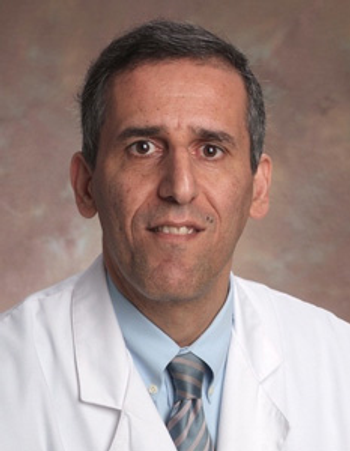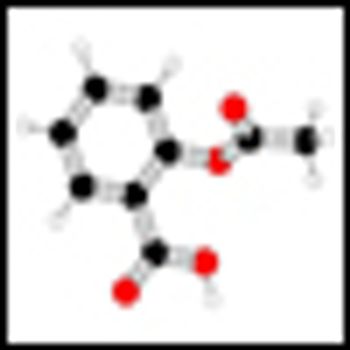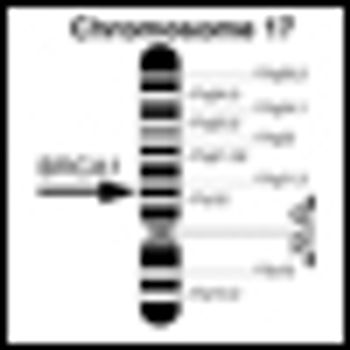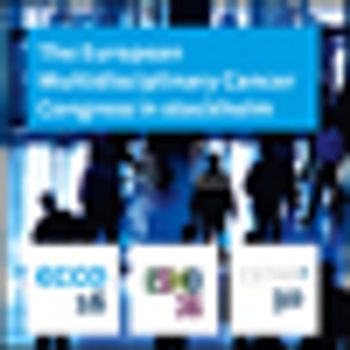
This is a very emotional issue. Any time a group claims less screening is good, I always take it with a grain of salt-yet the data certainly seem to support that generalized screening with PSA may not impact survival in the general population.

Your AI-Trained Oncology Knowledge Connection!


This is a very emotional issue. Any time a group claims less screening is good, I always take it with a grain of salt-yet the data certainly seem to support that generalized screening with PSA may not impact survival in the general population.

Resection of liver metastases represents a major advance of the last few decades in the treatment of colorectal cancer.

Hepatic metastases remain a lethal and recalcitrant problem in the management of malignant disease, and the review by Drs. Zani and Clary of the role of hepatic metastasectomy for patients with stage IV melanoma or breast cancer is timely and welcome.

Isolated pulmonary metastases (PM) represent a unique manifestation of the myriad presentations of systemic spread from a primary neoplasm.

In this issue of ONCOLOGY, Kon and Martin review the difficult issue of lung metastasis from sarcoma and its management.

Surgical resection of isolated pulmonary metastases has been incorporated into the management of cancer for more than 70 years. However, many questions still remain concerning indications, technique, and efficacy for this approach.

The article by Aneja, Gross, Soulos, and Yu outlines applications of geographical information systems (GIS) software to oncology research.

Flax, an annual plant believed to have originated in Egypt, is cultivated around internationally and is among the world’s oldest crops.

This review summarizes the existing literature that addresses the topic of metastasectomy in patients with melanoma and breast cancer.

This review describes the development and technical capabilities of GIS, potential applications of Geographical Informational Systems in cancer research, and the limitations of such work.

In this article, we provide an extensive review of patient selection criteria and surgical approaches, as well as of controversies regarding resection for metastatic sarcoma.

This article summarizes some of the most important federal coverage provisions and safeguards that promote access to preventive services for individuals with cancer or individuals who are at risk for cancer

Marginal zone lymphoma of mucosa-associated lymphoid tissue (MALT) lymphoma is an indolent B-cell non-Hodgkin lymphoma arising from the lymphoid tissue at extranodal sites.

After more than two decades of successful laboratory and clinical research, the "new" entity of mucosa-associated lymphoid tissue (MALT) lymphoma is reaching a noble maturity.

Normal B lymphocytes can follow either of two functionally distinct pathways of development. The first is a classical germinal center T-dependent pathway in which diversification and maturation generate a delayed but almost unlimited high-affinity response to antigens.

We are seeing a revolution in cancer care in this country, not just due to advances in chemotherapy and biological therapy, but also in how we communicate and connect with our patients.

ATG is associated with reduced risk of acute and chronic graft-versus-host disease without increasing the risk of relapse in myeloablative donor transplants. However, there has been an ongoing debate about the role of ATG in reduced intensity conditioning (RIC) HSCT, and there are still bone marrow transplant centers that use ATG in the RIC setting, and their main argument is that ATG could help with engraftment and reducing the risk of GVHD. Different types and doses of ATG have been used in the RIC setting.

Epidemiological evidence as well as evidence from recent randomized trials suggest that aspirin may be of use in the adjuvant setting to treat cancer.

Vitamin E supplements, rather than reducing the risk of prostate cancer have been found to increase the risk of developing the disease. The findings are a 3-year follow-up to the Selenium and Vitamin E Cancer Prevention Trial (SELECT).

Women with high-grade serous ovarian cancer who also harbor a BRCA2, but not a BRCA1 mutation tend to have a better chemotherapy response and overall survival compared with those patients who are BRCA wild type.

A recent epidemiology study by the NCI has found an almost four-fold increase of cancer survivors since 1971: 11.9 million in 2008 compared with 3 million in 1971, and the authors of the study expect a 42% increase in the number of older adult survivors in the next 10 years.

of a prospective biomarker analysis for the phase III SATURN trial in NSCLC patients taking erlotinib as maintenance therapy now show that those with activating EGFR mutations had extended progression-free survival compared to patients with KRAS mutations.

With personalized medicine focusing on patient subpopulations, smaller, faster trials may improve cancer patient survival and facilitate availability of new treatments.

Highlights of the late-breaking data presentations in advanced melanoma and colorectal cancer from the European Multidisciplinary Congress held in Stockholm, Sweden, September 23-27, 2011.

Dr. Josep Tabernero of the Vall D'Hebron University Hospital in Barcelona presented the positive results of the VELOUR study on Sunday September 25, including the newly presented pre-specified subgroup analysis. The primary endpoint results had been reported at the ESMO/WCGC meeting earlier this year.

This phase I/II trial assessed the efficacy of mFOLFOX6 with either BIBF 1120, an oral anti-angiogenesis agent, or with bevacizumab, an anti-angiogenesis antibody, in chemotherapy-naïve patients with metastatic colorectal cancer (mCRC). Patients were randomized 2:1 to the BIBF 1120 and bevacizumab arms, respectively.

Radium-223, an alpha particle given intravenously, has been shown to improve overall survival in men with castrate-resistant prostate cancer (CRPC), with a 30% risk reduction of death (HR = 0.695, P = 0.00185).

Results of the AZURE trial revealed small improvements in disease-free and overall survival when zoledronic acid was used in addition to adjuvant therapy in a subgroup of early-stage breast cancer patients who had been postmenopausal for more than 5 years.

The European Multidisciplinary Cancer Congress, taking place from September 23rd to the 27th in Stockholm, brings together the European oncology community and is a joint effort between the European Society for Medical Oncology (ESMO), the European Cancer Organization (ECCO) and the European Society for Therapeutic Radiology and Oncology (ESTRO).